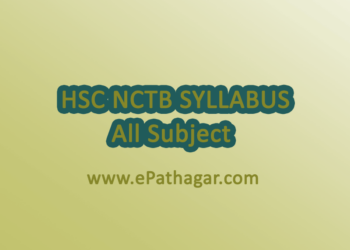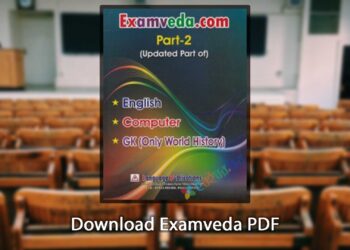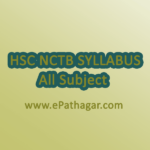Toni Morrison’s Beloved is a haunting tale that delves deep into the legacy of slavery, its psychological toll, and the quest for freedom and identity. Set in post-Civil War America, the story revolves around Sethe, a former slave who escapes to Ohio but remains haunted by the trauma of her past. The arrival of a mysterious young woman named Beloved, whom Sethe believes to be the reincarnation of her deceased daughter, unlocks a torrent of buried memories and emotions. Through vivid prose and powerful imagery, Morrison explores themes of motherhood, sacrifice, and the enduring scars of slavery on the human psyche. Beloved Book Summary is a poignant exploration of the complexities of love and loss and a testament to the resilience of the human spirit in the face of unspeakable cruelty and injustice.
Beloved Book Summary
Introduction: Toni Morrison’s Beloved stands as a literary masterpiece that delves into the depths of human suffering, resilience, and the enduring legacy of slavery in America. Published in 1987, this Pulitzer Prize-winning novel remains a seminal work in American literature, captivating readers with its haunting narrative and profound exploration of trauma and memory. Set in post-Civil War Ohio, Beloved follows the journey of Sethe, a former slave grappling with the ghosts of her past. In this detailed review, we will dissect the thematic intricacies, narrative techniques, and socio-historical context of Morrison’s magnum opus. It’s not a beloved chapter summaries but you can say this as a beloved novel analysis or beloved book analysis too, here it goes below.
Socio-Historical Context: To truly appreciate Beloved one must understand the socio-historical backdrop against which it unfolds. Morrison draws upon the brutal realities of slavery in antebellum America, weaving a narrative that exposes the horrors endured by enslaved individuals and the profound impact of this institution on generations to come. Through meticulous research and historical accuracy, Morrison transports readers to a time marked by systemic oppression, violence, and dehumanization. By confronting the dark chapters of American history, Beloved serves as a potent reminder of the enduring scars of slavery and the urgent need for reconciliation and healing.
Themes of Trauma and Memory: Central to Beloved is the exploration of trauma and memory, themes that permeate every facet of the narrative. Sethe’s journey is defined by the trauma of her past—a past that refuses to remain buried. The arrival of Beloved, whom Sethe believes to be the reincarnation of her deceased daughter, serves as a catalyst for the resurfacing of suppressed memories and emotions. Morrison skillfully navigates the intricacies of memory, portraying it as both a source of healing and a haunting specter of the past. Through her evocative prose, Morrison captures the visceral nature of trauma, inviting readers to confront the lingering effects of historical trauma on individual and collective consciousness.
Motherhood and Sacrifice: At its core Beloved is a poignant exploration of motherhood and sacrifice. Sethe’s fierce love for her children drives her actions, propelling her to make unimaginable sacrifices in the name of their freedom and survival. The character of Sethe embodies the resilience of motherhood in the face of adversity, showcasing the lengths to which a mother will go to protect her offspring. Through Sethe’s experiences, Morrison challenges traditional notions of motherhood, presenting a complex portrayal that transcends societal expectations. The bond between Sethe and her children serves as a beacon of hope amidst the darkness of their circumstances, illustrating the enduring power of love in the face of oppression.
Identity and Selfhood: Beloved Book Summary also grapples with questions of identity and selfhood in the aftermath of slavery. Sethe and other characters wrestle with the burden of their pasts, struggling to reconcile their sense of self with the trauma they have endured. Beloved’s enigmatic presence forces Sethe to confront the ghosts of her past and reckon with the consequences of her actions. Morrison deftly explores the complexities of identity formation in a society that seeks to deny humanity to its marginalized members. Through characters like Sethe, Denver, and Paul D, Morrison highlights the ongoing struggle to reclaim agency and assert one’s individuality in the face of systemic oppression.
Narrative Structure and Symbolism: Morrison employs a rich tapestry of narrative techniques and symbolism to weave together the disparate threads of Beloved. The novel unfolds through a non-linear narrative, with fragmented memories and shifting perspectives that mirror the fractured psyche of its characters. This stylistic choice immerses readers in the labyrinthine depths of Sethe’s consciousness, inviting them to piece together the fragments of her past. Symbolism abounds in Beloved with motifs such as water, trees, and the color red serving as potent symbols of life, death, and rebirth. Morrison’s masterful use of symbolism adds layers of meaning to the narrative, enriching the reader’s understanding of the novel’s themes and characters.
Language and Style: Morrison’s prose is a tour de force of literary craftsmanship, characterized by its lyrical beauty and emotional resonance. Her evocative language transports readers to the heart of the story, immersing them in the sensory details of the characters’ lives. Through vivid imagery and rich symbolism, Morrison paints a vivid portrait of a world scarred by slavery yet pulsating with life and resilience. The use of vernacular speech adds authenticity to the dialogue, grounding the narrative in the linguistic traditions of African American culture. Morrison’s prose is both poetic and powerful, leaving an indelible imprint on the reader’s soul long after the final page has been turned.
What are the weaknesses of this book?
Beloved is widely celebrated for its literary brilliance and thematic depth, it is not without its weaknesses. One criticism often leveled at the novel is its dense and at times challenging narrative style. Morrison’s use of non-linear storytelling, fragmented memories, and shifting perspectives can be disorienting for some readers, making it difficult to fully engage with the plot and characters. Additionally, the novel’s heavy reliance on symbolism and metaphor may alienate readers who prefer more straightforward storytelling. The pervasive use of vernacular speech, while adding authenticity to the dialogue, can also pose a barrier for readers unfamiliar with African American dialects.
Another weakness of Beloved Book Summary lies in its portrayal of historical accuracy. While Morrison meticulously researches the horrors of slavery, some critics argue that her depiction of certain historical events and characters may veer into the realm of artistic license. This departure from strict historical accuracy can undermine the novel’s credibility for readers seeking a more faithful representation of the past.
Some readers may find fault with the novel’s pacing, particularly in its middle section, which can feel slow-moving compared to the gripping intensity of the opening chapters. The complexity of the narrative structure and the abundance of subplots may also contribute to a sense of narrative sprawl, leading to moments of confusion or frustration for readers trying to piece together the overarching story.
Despite these weaknesses Beloved remains a seminal work in American literature, revered for its profound exploration of trauma, memory, and the enduring legacy of slavery. While it may not be a book for every reader, its impact and influence on the literary landscape are undeniable, cementing its status as a modern classic.
Also Read: On The Road Book Synopsis Review
Beloved book age rating – Suitable ages of readers
Determining the suitable age for readers of Toni Morrison’s Beloved Book Summary can be complex due to the mature themes and content it explores. The novel contains graphic depictions of violence, including scenes of slavery, abuse, and infanticide, which may be distressing for younger readers. Additionally, the novel delves into themes of trauma, sexuality, and psychological distress, which may not be appropriate for all age groups.
Given these considerations Beloved is generally recommended for mature readers, typically ages 16 and above. Teenagers in their mid to late teens who possess the emotional maturity to grapple with the challenging subject matter and nuanced themes presented in the novel may find it a thought-provoking and enlightening read. However, parental discretion is advised, and caregivers should consider the individual sensitivities and maturity levels of their teenage readers before allowing them to engage with the book.
Beloved is a powerful and important work of literature that offers valuable insights into the human condition and the enduring legacy of slavery in America. While it may not be suitable for younger or more sensitive readers, mature teenagers and adults can benefit from engaging with its profound themes and compelling narrative.

How the writer could make this book more interesting?
To enhance the reader’s engagement with “Beloved,” the writer could consider several approaches. Firstly, they could deepen the character development by providing more nuanced insights into the backgrounds, motivations, and emotions of key characters such as Sethe, Beloved, and Denver. By delving further into their inner lives, the writer could foster a stronger connection between readers and the characters, making their struggles and triumphs more compelling and relatable. the writer could employ more dynamic storytelling techniques to maintain the reader’s interest. This could involve experimenting with narrative structures, incorporating flashbacks or multiple perspectives to provide fresh insights into the story. By breaking away from a linear narrative and introducing unexpected twists and turns, the writer can keep readers engaged and eager to uncover the mysteries of the plot.
The writer could heighten the sense of atmosphere and tension in the novel by vividly depicting the settings and environments in which the story unfolds. By evoking the sights, sounds, and sensations of post-Civil War America, the writer can immerse readers in the world of Beloved Book Summaryand enhance the emotional impact of the narrative. the writer could explore additional thematic layers or subplots to enrich the overall narrative. By weaving in new themes or expanding upon existing ones, the writer can add depth and complexity to the story, prompting readers to reflect more deeply on the novel’s underlying messages and implications. By incorporating these strategies, the writer can elevate Beloved into an even more captivating and thought-provoking literary work, inviting readers to engage with its themes and characters on a deeper level.
Why this book is so popular in the 20th century?
Beloved achieved widespread popularity in the 20th century due to its profound exploration of themes that resonated deeply with readers of the time. Toni Morrison’s masterful storytelling, coupled with her poignant portrayal of the legacy of slavery, captivated audiences and garnered critical acclaim. The novel’s unflinching examination of trauma, memory, and the human spirit struck a chord with readers grappling with the complexities of identity, history, and social justice. Morrison’s evocative prose and rich symbolism transported readers to a visceral world marked by suffering and resilience, inviting them to confront uncomfortable truths about America’s past. Beloved distinguished itself through its innovative narrative structure and compelling characters, offering a fresh perspective on familiar historical terrain. As the Civil Rights Movement gained momentum and conversations about race and equality took center stage Beloved emerged as a seminal work that challenged prevailing narratives and expanded the literary canon. Its enduring popularity can be attributed to its timeless themes, universal resonance, and enduring relevance in confronting the enduring legacy of slavery and its impact on the human experience.
Purchase This Book From Amazon
Should this book be worth reading now in 2024?
Beloved remains as relevant and essential in 2024 as it was when it was first published. Toni Morrison’s exploration of trauma, memory, identity, and the legacy of slavery transcends temporal boundaries, offering profound insights into the human condition that resonate with readers across generations. In an era marked by ongoing struggles for social justice and racial equity, the themes and messages of Beloved Book Summary continue to hold immense significance. The novel serves as a powerful reminder of the enduring impact of historical injustices and the urgent need for reconciliation and healing in contemporary society. Additionally, Morrison’s masterful storytelling and lyrical prose ensure that “Beloved” retains its power to captivate and move readers, regardless of the passage of time. By engaging with “Beloved,” readers in 2024 can gain a deeper understanding of America’s complex history and the ongoing quest for freedom and dignity. In essence, “Beloved” is not just worth reading; it is a vital literary work that enriches our understanding of the past and illuminates the path forward towards a more just and compassionate future.
Conclusion: Beloved Book Summary
Toni Morrison’s Beloved stands as a towering achievement in American literature, offering a profound and haunting exploration of the legacy of slavery and its enduring impact on the human psyche. Set in post-Civil War Ohio, the novel follows the journey of Sethe, a former slave grappling with the ghosts of her past. Through meticulous prose and rich symbolism, Morrison delves into themes of trauma, memory, motherhood, and identity, inviting readers to confront uncomfortable truths about America’s history. Despite its challenging subject matter, Beloved Book Summary remains a timeless masterpiece that continues to captivate and resonate with readers today. Morrison’s powerful storytelling, coupled with her evocative language and deep thematic resonance, ensures that Beloved retains its relevance and significance, serving as a testament to the resilience of the human spirit in the face of unspeakable suffering. In essence Beloved is not merely a novel; it is a profound meditation on the human condition and a poignant reminder of the enduring power of love, courage, and redemption.













This Post Has 0 Comments